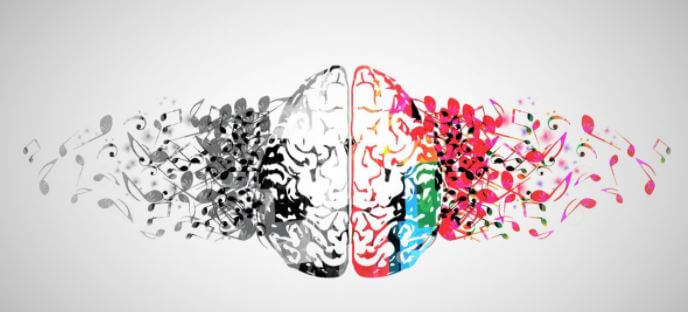 Just about everyone knows that music can impact how they think and feel, but have you ever thought about the intricacies of how music has a profound impact on our brain and other organs? This article will share some of the effects that music can have on your body and how that translates to your overall health.
Just about everyone knows that music can impact how they think and feel, but have you ever thought about the intricacies of how music has a profound impact on our brain and other organs? This article will share some of the effects that music can have on your body and how that translates to your overall health.
Your Cardiovascular System
Music can come in countless different forms, but many people can often narrow things down as relaxing or energetic or in-between.
Depending on the tempo of the song you’re listening to, music can affect your heart rate, blood pressure, and quality of breathing in different ways, which consequently alter your mood.
Slower tempos can help you wind-down and relax by decreasing the performance of these organs, whereas faster tempos can make you want to dance and have fun or feel motivated to exercise, or even feel anxious due to how the body is responding to the music.
Learning & Cognition
You may have noticed that many people love listening to music while performing mentally-intensive tasks, such as studying.
Classical music, in particular, has been shown to help people concentrate and increase their cognitive abilities. It can improve your memory, and some studies have shown that music can help people be quicker and more precise with their tasks.
According to Harvard Medical School, It is believed that music has these capabilities because it can stimulate the nerve cells in the right side of the cerebral cortex, which is responsible for various cognitive abilities like the ones mentioned above.
Relieving Mental Disorders
As mentioned earlier in this article, music can affect your mood, and this benefit should not be underestimated since it can be therapeutic for those who suffer from chronic mental health conditions like anxiety and depression.
Listening to music has been shown to influence several vital neurotransmitters in the brain; for example, it can increase dopamine and serotonin and can reduce stress hormones like cortisol. All of these are connected to your mental health.
While it’s not a substitute for medication or therapy, it can certainly be supplemental and make recovery easier for you, especially when used in conjunction with methods like CBT, which you can learn about here:
https://www.betterhelp.com/advice/therapy/what-does-cbt-stand-for-and-what-can-it-help/
Pain Relief
Similar to how music can be beneficial in treating mental health issues, it may also be able to have physical benefits as well by reducing pain.
The way music is believed to have analgesic properties is because music may help increase endorphin and catecholamine levels, or it can simply provide a temporary distraction from the pain they are having.
In fact, along with CBT and exercise, music is sometimes cited as a great non-pharmacological method when it comes to pain management, and therefore, can be beneficial to both your physical and mental health.
Social Connection
Humans have an innate desire to belong to groups and feel connected with others and music can help facilitate this.
Throughout history, music has been used to bring people together. To name a few examples, you have tunes that are used for worshipping, entertainment, and even courtship. Even lullabies can make parents and children feel more connected to each other.
In a more casual sense, people can simply make new friends and bond over the same tastes of artists, and this can be observed in the fan base or communities across all genres. This connection and sense of belonging can definitely contribute to the mental health of all individuals, and may also give them increased meaning in life.
Conclusion
Music is one of the most significant achievements that humans have created, and hopefully, this article has shown you how this artform can be appreciated beyond just listening to it. Next time, you listen to music, pay closer attention, and perhaps you’ll be more aware of the benefits that music can have on your health.
Marie Miguel
Latest posts by Marie Miguel (see all)
- THERAPIES THAT MAY IMPROVE YOUR MENTAL HEALTH — February 4, 2021
- WHAT IS MUSIC THERAPY & WHY SHOULD YOU TRY IT? — February 4, 2021
- OVERCOMING TRAUMA WITH ONLINE THERAPY — DOES IT WORK? — February 4, 2021
